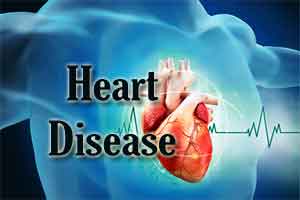- Home
- Editorial
- News
- Practice Guidelines
- Anesthesiology Guidelines
- Cancer Guidelines
- Cardiac Sciences Guidelines
- Critical Care Guidelines
- Dentistry Guidelines
- Dermatology Guidelines
- Diabetes and Endo Guidelines
- Diagnostics Guidelines
- ENT Guidelines
- Featured Practice Guidelines
- Gastroenterology Guidelines
- Geriatrics Guidelines
- Medicine Guidelines
- Nephrology Guidelines
- Neurosciences Guidelines
- Obs and Gynae Guidelines
- Ophthalmology Guidelines
- Orthopaedics Guidelines
- Paediatrics Guidelines
- Psychiatry Guidelines
- Pulmonology Guidelines
- Radiology Guidelines
- Surgery Guidelines
- Urology Guidelines
Women suffering from SCAD have better outcome with conservative care

Most heart attacks occur when plaque built up in arteries over a lifetime rupture causing a blockage.Spontaneous coronary artery dissection or SCAD is a type of heart attack that affects mainly younger women. In SCAD, a tear occurs inside an artery, and that can cause a blockage, leading to a heart attack. According to a new scientific statement by a Mayo Clinic-led team -Women suffering from SCAD have better outcome with conservative care. The study has been published by the American Heart Association in its journal, Circulation.
"It may seem counterintuitive, but we discovered that treating SCAD the same way we treat heart attacks due to atherosclerosis can cause further tearing and damage to the vessel," says Sharonne Hayes, M.D., chair of the writing group for the new scientific statement and a Mayo Clinic cardiologist who founded its Women's Heart Clinic. "But the initial proper diagnosis is critical in guiding the care."
The statement is an overview of what an international group of experts know about SCAD, including:
- Risk factors
- Its high rate of post SCAD chest pain and recurrence
- Its association with women, pregnancy, and physical and emotional stress triggers
- Its connection to other diseases of the arteries, such as fibromuscular dysplasia
- The best diagnosis and treatment recommendations based on new evidence and experts' care of SCAD patients
Until 2010, little was understood about SCAD, which had been described as a rare and universally fatal cause of acute coronary syndrome, heart attack and sudden cardiac arrest in women during and shortly after pregnancy.
Over the past several years research has refuted these misunderstandings. Increased understanding of SCAD, availability of intravascular imaging techniques, development of SCAD specific angiographic classification, increased awareness among providers, and efforts by SCAD patients using social media suggest that SCAD is much more common than previously thought, especially in young women.
The average age of women with SCAD ranges from 45 to 53 years. SCAD occurs overwhelmingly in women, and among individuals who have few conventional cardiovascular risk factors, such as high blood pressure, unhealthy cholesterol levels or smoking, the statement says.
"Even with what we have learned over the past several years, SCAD continues to be misdiagnosed and underdiagnosed," Dr. Hayes says. "And we know it is not rare. It is the No. 1 cause of heart attack during pregnancy and in the period right after giving birth, and the No. 1 cause of heart attack in women under age 50."
Misdiagnoses often happen because of a low suspicion of heart attack in younger women who do not have typical heart disease risk factors but arrive at an emergency room with classical heart attack symptoms, such as discomfort in the chest and the upper body, shortness of breath, nausea and light-headedness, Dr. Hayes says. Misdiagnoses also can happen if the patient is sent to the catheterization lab, where stents are often used to open blocked arteries. The statement provides expert consensus to help health care providers know how to best treat SCAD patients.
The statement shows that, in most patients who did not receive stents, the dissections healed on their own within weeks and months. For some, the healing began within days, Dr. Hayes says.
The statement also emphasizes the importance of tailored cardiac rehabilitation programs for SCAD patients. In addition, addressing mental health is critical, the authors say. "Anxiety and depression are common in SCAD survivors, and they often are being treated by health care providers who have little familiarity of the disease or in providing psychosocial support," Dr. Hayes says. "We've found that online support groups can be immensely helpful in addition to finding a care team that is responsive to patients' concerns," she says.
The cause of SCAD is believed to be a combination of factors, including diseases of the arteries, genetic factors, hormonal influences and, less commonly, connective tissue diseases. These factors can be compounded by environmental stressors.
The statement points to persistent gaps in knowledge of SCAD. Only recently have there been limited prospective studies, and most available data are retrospective and observational. Larger-scale prospective and epidemiological studies are needed to understand the disease and improve treatment, Dr. Hayes says.

Disclaimer: This site is primarily intended for healthcare professionals. Any content/information on this website does not replace the advice of medical and/or health professionals and should not be construed as medical/diagnostic advice/endorsement or prescription. Use of this site is subject to our terms of use, privacy policy, advertisement policy. © 2020 Minerva Medical Treatment Pvt Ltd